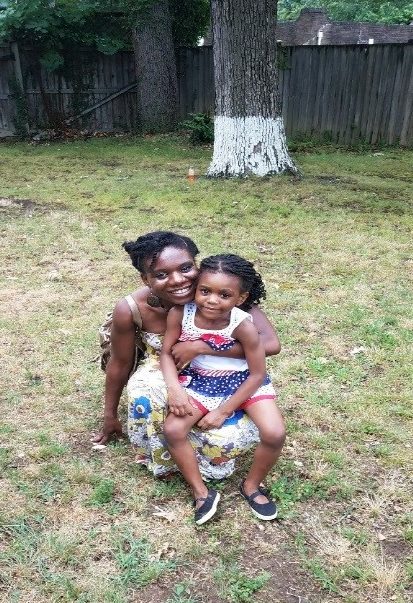October 11, 2017
By Precious Sancho, Senior Technical Advisor, Water, Sanitation and Hygiene, World Vision US. Originally published by World Vision International on 4 October 2017.

Photo courtesy of World Vision US.
Little Blessing is truly my blessing! Her smile lights up the room and you can’t help laughing at her hyper child-like innocence. Blessing and her mother, my cousin, arrived in Virginia from Liberia in the fall of 2015. I met her as a bubbly 4-year-old who kept me laughing and on my toes with her child-like antics. We spent a week together, running to the nearest playground, reading children books, and smirking at Dora’s adventures and Barney’s sing-alongs on TV.
One thing that left a mark on me was Blessing’s constant and consistent handwashing tactics when she went to the bathroom. It was unlike the normal 4-year-old way of washing their hands for the sake of playing with the water. She would wash her hands using the taught actions of an adult, washing thoroughly and with soap. She made sure to repeat these actions no matter what reason she went to the bathroom.
As I watched her, puzzled, it finally dawned on me that Blessing was 2 years old when Ebola hit Liberia. There, at that time, proper handwashing could save your life. I praise God for the coordinated efforts of many international and national stakeholders intervening in the Ebola crisis in Liberia—thanks to them I can now bask in the laughter of my little niece. As a humanitarian worker specializing in water and sanitation, it truly hit home for me that handwashing protects our future. Blessing’s handwashing actions prove that children are change agents in improving adult health behavior–my niece has shown me that small doable actions like handwashing truly save lives.
Handwashing with soap has been proven effective and can reduce the number of people getting sick with diarrheal diseases by 31%.[1] The Ebola crisis in Sierra Leone, Liberia, and Guinea will be forever etched in our memories as a global health crisis requiring strong coordinated efforts from local and international aid organizations, UN agencies, community-based organizations, and host country governments. Between December 2013 and April 2016, there were nearly 29,000 reported cases and over 11,000 fatalities in West Africa, representing the deadliest Ebola outbreak in history (Global Handwashing Partnership, 2016). The Ebola crisis forced Liberia to shift from its hierarchical leadership to a more coordinated and shared responsibility effort between its ministries to effectively combat the disease. Like many agencies, World Vision played a key role in effective community engagement to contain the spread of Ebola. In Sierra Leone, World Vision brought together 460 trained ministers and imams, and 150 community leaders through its Channels of Hope approach to combat social taboos and stigma, which strongly contributed to combating the spread of the disease (Lancet, July 2015). The Ebola crisis is a proving that handwashing is an effective tactic in protecting ourselves and our children, and therefore our future. The combined and coordinated efforts of all international and local stakeholders, including government ministries and religious leaders, was strategic in combating the spread of disease early on, creating a strong learning platform for future crises.
[1] Ejemot RI, Ehiri JE, Meremikwu MM, Critchley JA. Hand washing for preventing diarrhoea. Cochrane Database Syst Rev. 2008;1:CD004265.
Subscribe to our mailing list to receive regular updates from the Global Handwashing Partnership or follow us on social media.
© 2017 The Global Handwashing Partnership (GHP).